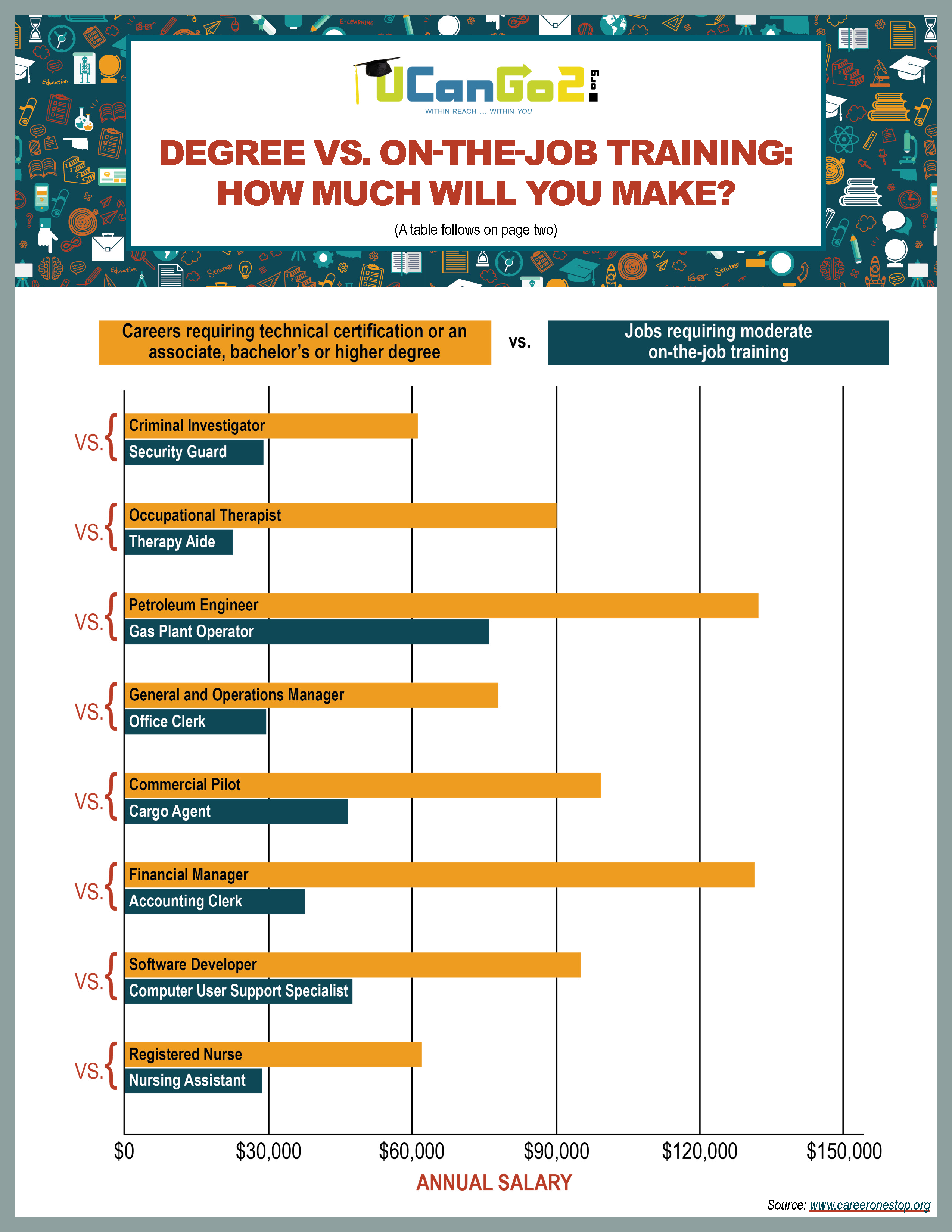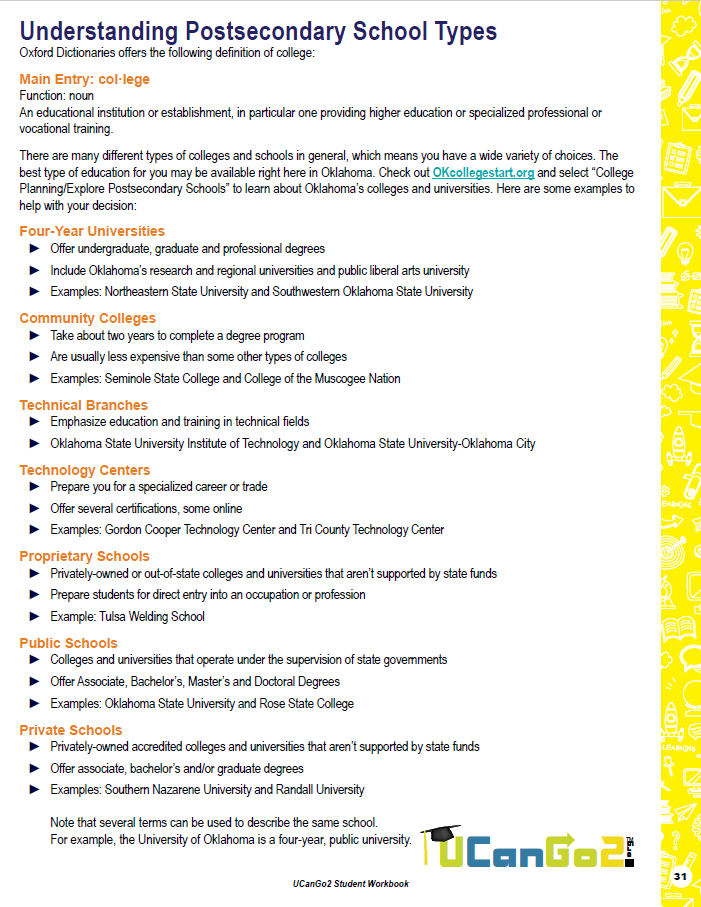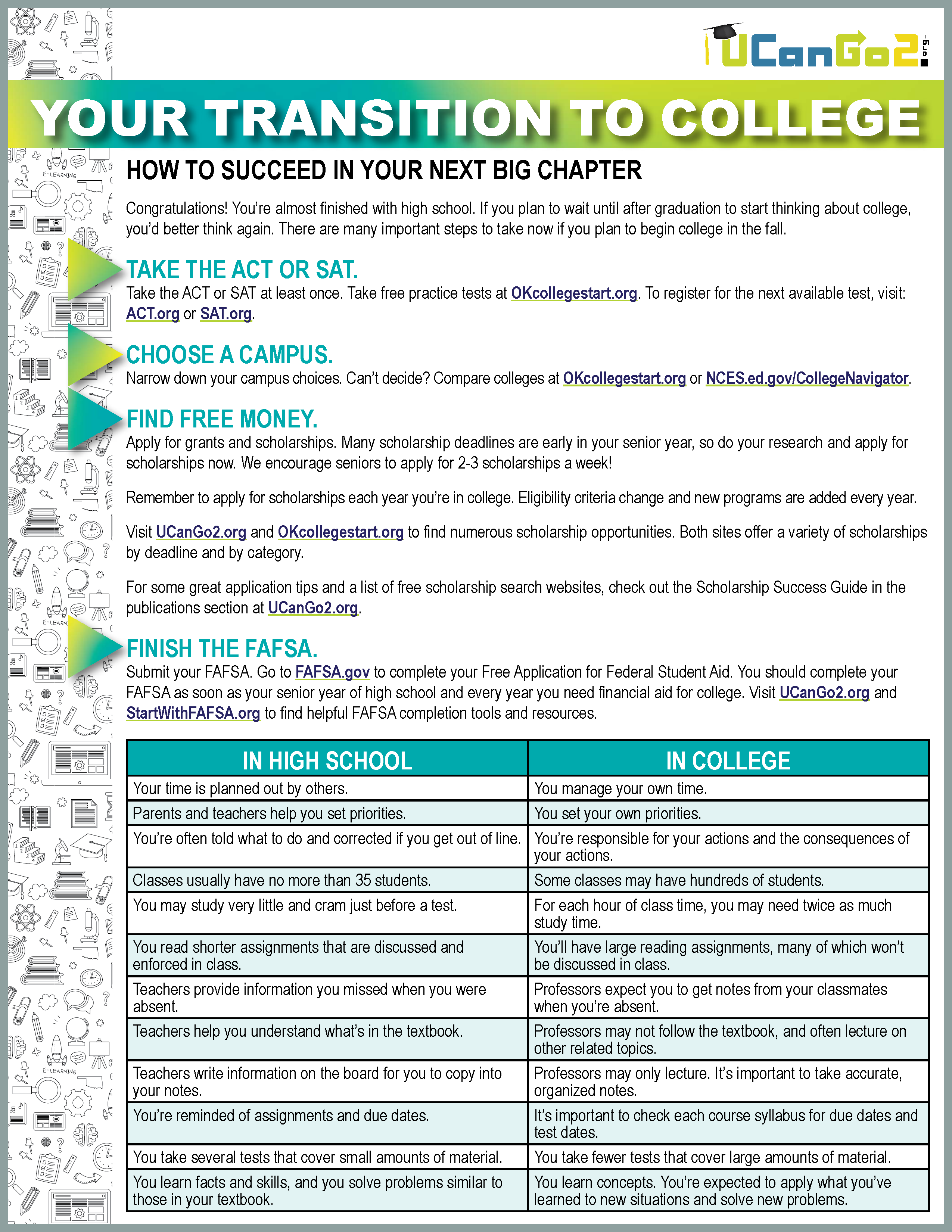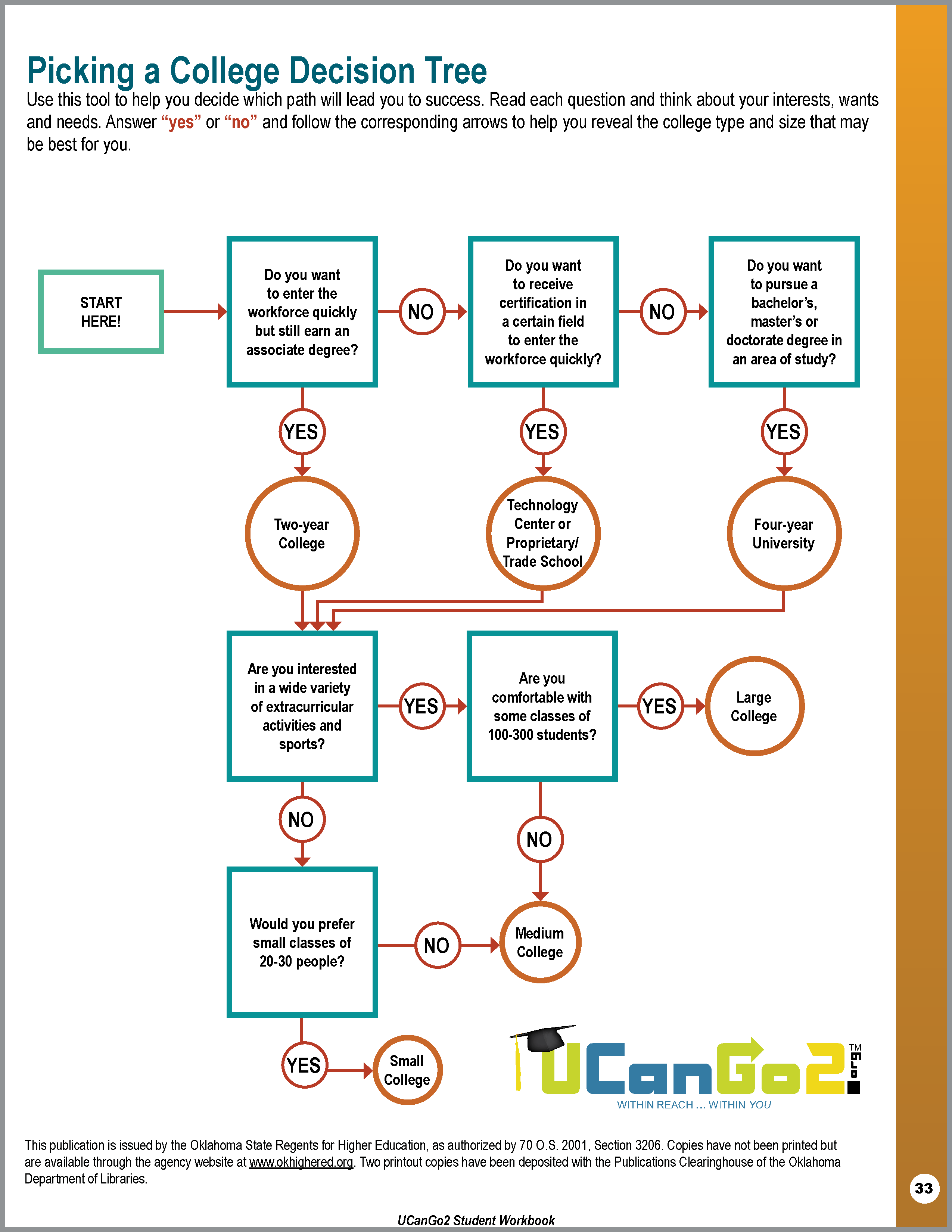Planning for College as an Adult
Is College the Right Choice for You?
If you're an adult interested in going, or going back, to college, you may be surprised to learn that you're certainly not alone. Millions of adults enroll in college courses every year for many reasons. Some are aiming for a career change, while others are trying to improve their current skill set. Whatever the reason, we understand that the decision to go to college as an adult often comes with a handful of unique circumstances. And, as adults, our time and finances are often restricted by our responsibilities to work, paying bills and take care of family.
Use the tabs below to learn about the meaning, value and benefits of a college education to help you decide if college is the right choice for you.
- Types of Colleges
- The Benefits of College
- Things to Consider
- Addressing Concerns
Types of Colleges in Oklahoma
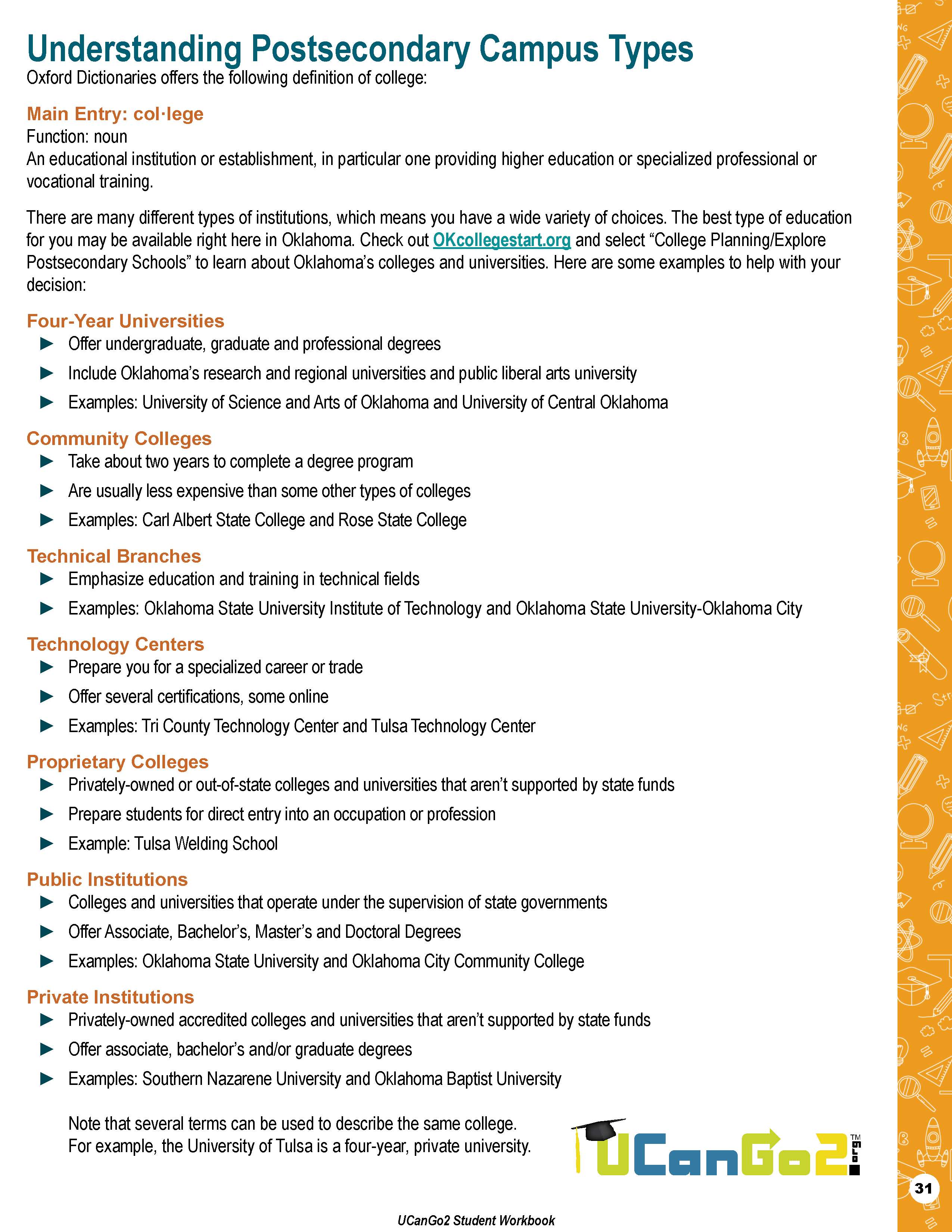 When we mention "college," we mean all types of education after high school: technology centers, trade/proprietary schools, community colleges, regional and comprehensive universities.
When we mention "college," we mean all types of education after high school: technology centers, trade/proprietary schools, community colleges, regional and comprehensive universities.
There are different types of colleges and universities, and all types can be found in Oklahoma. Learn more about different types of colleges.
Next tab: "The Benefits of College"
What Are the Benefits?
Higher Income — In general, those with some type of degree or certification earn significantly more than those with only a high school diploma. In fact, according to the College Board of Advocacy and Policy Center, those with a bachelor's degree earn about 67 percent more than those with only a high school diploma.
Still not convinced? Check out the Degree vs. On-the-Job Training Chart in the "Helpful Tools" section below to compare salaries.
Job Satisfaction — College gives you the freedom to choose classes and a career path that interests and pleases you. If you choose a career in a field that you like, you're more likely to be satisfied with your everyday work.
Better Benefits — In addition to higher income and job satisfaction, a college degree can also help open the door to a career with good health insurance coverage, paid vacation time, a retirement package and more.
More Job Security — People with additional training after high school are more likely to have and keep a job.
Next tab: "Things to Consider"
Previous tab: "Types of Colleges"
Things to Consider
When it comes to deciding if college is the right choice for you, a good old-fashioned pros/cons list can help you organize your thoughts and make a choice. While each person's situation varies, we've identified some of the common pros and cons for adults returning to school below. Use this list as a starting point to brainstorm your own pros/cons list.
Pros |
Cons |
|
|
Next tab: "Addressing Concerns"
Previous tab: "The Benefits of College"
Addressing Concerns
What comes to mind when you think about college? Some adults are intrigued by the prospect of college, while others have some concerns. If you have apprehensions similar to those listed below, we recommend you read the responses that follow each and feel free to have an open conversation with your family and/or peers to help address your concerns.
Common Concerns:
How will I be able to balance all of my responsibilities and focus on classes?
Going to college as an adult comes with unique challenges. Between work, family obligations, bills and household chores, most adults already have full plates. Adding classwork to the list is no small decision. College courses require a great deal of time, energy and self-motivation. But if you're considering going to college, you've already considered how the benefits of a degree can improve your life. Though college can be demanding, where there's a will there's a way. Talk to your family about what college will require of you. Ask if they'd be willing to help pick up some of the slack if you find yourself strapped for time. Discuss your options with your employer. See if they'd be willing to offer you a flexible schedule so you can attend class and/or make time to study. And, talk to an admissions officer at a school you're interested in attending to see what programs or services they offer for adult learners.
What if I am the only adult in any of my classes?
Millions of adults over the age of 25 attend college. According to the National Center for Education Statistics, adult learners are one of the fastest growing demographics in colleges and universities in the United States. The point is, you're not alone.
College is too expensive. There's no way I can afford it.
Oklahoma public colleges and universities are among the most affordable in the nation. College does cost in terms of tuition, books and time, but it can also be a smart investment in your future. Very few people get a full ride to college (i.e., all college expenses paid in full); that's why there's financial aid. Financial aid comes in many forms, including grants, scholarships, work-study and student loans. If getting an education is your goal, there are financial aid options to help you along the way. Learn more about paying for college by clicking the green "Pay" button above.
No one in my family has ever gone to college, so I have no idea what to expect from college.
While the prospect of college can be both scary and exciting, colleges are expertly staffed to help the many first-generation students at your school. Not only can college help you on the path to a bright future, your achievements in and beyond college may also be a source of pride for your family.
Previous tab: "Things to Consider"



